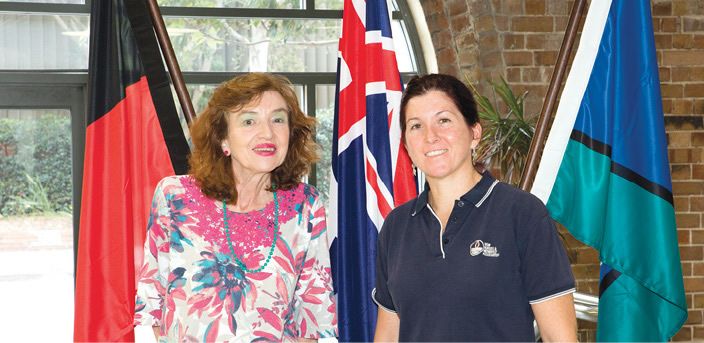
Nursing is a female dominated profession, with only 10% of nurses male, yet senior management roles in the health system remain mostly occupied by men.
While 90% of teachers in the primary system are female, only 70% of principals are females. The proportion of female principals is lower in the secondary system.
It’s no wonder that IEUA NSW/ACT Branch Women’s Convenor Pam Smith and NSW Nurses and Midwives’ Association northern Sydney Organiser Nicole Mason have found plenty to talk about.
The pair have been matched in a mentorship program, with experienced campaigner Pam providing advice and support to Nicole, who is relatively new to organising with three years’ experience, although she has been involved in unions throughout her career and has been a registered nurse for 20 years.
The mentorship program is an initiative of Unions NSW, to increase female participation in union activity and encourage more females to aspire to leadership roles in the movement.
“It’s nice to have people outside your industry to talk to about unionism and the issues we face,” Nicole said.
Pam said the pair had talked a lot about campaigning and the strategies, frustrations and challenges of getting a campaign off the ground.
The women manage to meet face to face about once a month but communicate regularly by phone and email. Challenges such as de-professionalisation, overwork, casualisation and temporary contracts are familiar to both sectors.
“It’s a tough industry to be in so I think extra support for women is crucial, having that extra connection makes a big difference,” Nicole said.
Pam said even though she is in the mentor’s role, she is learning a lot too.
“It is very energising and refreshing to speak to Nicole and hear what her union is doing about campaigning.”
A common problem in both professions is attitudes to job share and balancing family and work needs, which are blocking women’s paths to leadership roles.
“Career development issues for women are important in nursing and education,” Pam said.
“Talking about how to energise and organise our women members to enhance their workplace conditions is great for both of us,” she said.


































































































































